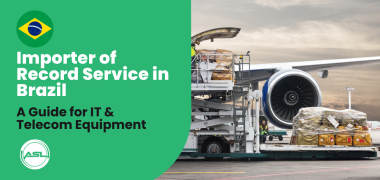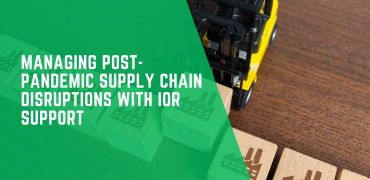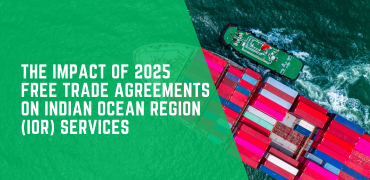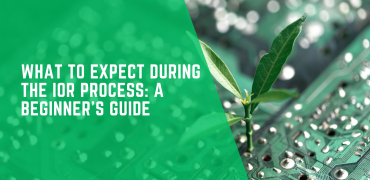Introduction
Brazil, as one of the largest economies in Latin America, presents a significant market for IT and telecom equipment. However, importing such equipment into Brazil involves navigating a complex regulatory environment. One key element in this process is the use of an Importer of Record (IOR) service. This article provides an overview of the IOR service and the relevant steps and considerations for importing IT and telecom equipment into Brazil.
What is an Importer of Record (IOR)?
An Importer of Record (IOR) is an entity or a service provider responsible for ensuring that imported goods comply with local laws and regulations. The IOR takes on the responsibility for the legal importation of goods, including handling the necessary documentation, paying duties and taxes, and ensuring compliance with customs regulations.
Why Use an IOR Service in Brazil?
- Regulatory Compliance: Brazil has stringent import regulations, especially for high-tech equipment. An IOR ensures compliance with these regulations.
- Cost Efficiency: Navigating the Brazilian import process can be costly and time-consuming. An IOR can streamline the process and reduce costs associated with delays or non-compliance.
- Local Expertise: IORs have local knowledge and expertise, which is crucial for handling bureaucratic procedures and avoiding common pitfalls in the import process.
Steps to Import IT & Telecom Equipment into Brazil
- Classify the Goods: Determine the correct tariff classification for the equipment. This involves identifying the Harmonized System (HS) codes, which affect duty rates and import regulations.
- Register with Siscomex: Importers must be registered with the Integrated Foreign Trade System (Siscomex), which is managed by the Brazilian Federal Revenue.
- Obtain Necessary Certifications: Certain IT and telecom equipment may require certifications from regulatory bodies such as ANATEL (National Telecommunications Agency) or INMETRO (National Institute of Metrology, Standardization, and Industrial Quality).
- Engage an IOR: If you are not established in Brazil or lack the infrastructure to manage the import process, engage an IOR service. The IOR will handle all necessary procedures and ensure compliance.
- Prepare Documentation: Ensure all required documents are in order, including the commercial invoice, packing list, bill of lading, and certificates of origin and compliance.
- Customs Clearance: The IOR will manage the customs clearance process, ensuring that all duties, taxes, and fees are paid. This step involves interaction with customs officials and adherence to local import regulations.
- Delivery and Distribution: Once the equipment has cleared customs, the IOR will facilitate delivery to the final destination within Brazil.
Duty/Tax applied on IT & Telecom Imports in Brazil
Importing IT and telecom equipment into Brazil involves several duties and taxes. Here is a breakdown of the key taxes and duties typically applied:
- Import Duty (Imposto de Importação – II): This is the tax levied on the importation of goods. The rate varies depending on the product’s classification in the Mercosul Common Nomenclature (NCM), which is based on the Harmonized System (HS) code. For most IT and telecom equipment, the import duty rate ranges from 0% to 16%.
- Tax on Industrialized Products (Imposto sobre Produtos Industrializados – IPI): This is a federal tax on manufactured goods. The IPI rate also depends on the product classification. For IT and telecom equipment, the IPI rate typically ranges from 0% to 15%.
- State Tax on Circulation of Goods and Services (Imposto sobre Circulação de Mercadorias e Serviços – ICMS): This is a state-level tax that varies from state to state, usually ranging between 17% and 18%. The ICMS is calculated on the sum of the CIF (Cost, Insurance, and Freight) value, Import Duty, and IPI.
- Social Integration Program Contribution (Programa de Integração Social – PIS): This is a federal tax applied to the importation of goods, generally at a rate of 2.1%.
- Social Security Financing Contribution (Contribuição para o Financiamento da Seguridade Social – COFINS): This is another federal tax applied to imported goods, usually at a rate of 9.65%.
Key Considerations
- Taxes and Duties: Brazil imposes several taxes on imported goods, including Import Duty (II), Tax on Industrialized Products (IPI), Merchandise and Services Circulation Tax (ICMS), and Contributions to the Social Integration Program (PIS) and Social Security Financing (COFINS). The IOR service can help manage and minimize these costs.
- ANATEL Certification: Telecom equipment must be certified by ANATEL to ensure compliance with Brazilian technical standards. This certification is crucial for products that use radio frequencies or connect to the public telecom network.
- INMETRO Certification: Some IT equipment may require certification from INMETRO, particularly if the products fall under specific technical and safety regulations.
How ASL can help import IT & Telecom equipment in Brazil
1. Expertise in Regulatory Compliance
ASL has extensive knowledge and experience in navigating Brazil’s complex regulatory environment. This includes ensuring compliance with local laws, obtaining necessary certifications, and handling customs documentation efficiently.
2. Streamlined Import Processes
ASL offers end-to-end import solutions that streamline the entire process. This includes:
- Pre-shipment Inspection and Documentation: Ensuring all necessary documents are in place before shipment.
- Customs Clearance: Managing the customs process to ensure timely and hassle-free clearance.
- Post-clearance Services: Providing services like delivery to the final destination and after-sales support.
3. Local Certifications and Standards Compliance
ASL can assist in obtaining required certifications from regulatory bodies such as ANATEL (National Telecommunications Agency) and INMETRO (National Institute of Metrology, Standardization, and Industrial Quality), which are critical for IT and telecom equipment.
4. Cost Management
By leveraging ASL’s expertise, companies can avoid common pitfalls that lead to costly delays and fines. ASL can help manage and potentially reduce costs associated with duties, taxes, and compliance procedures.
5. Local Presence and Network
ASL has a well-established local presence and a robust network in Brazil. This local presence allows for better coordination, faster problem resolution, and more effective handling of logistics and supply chain issues.
6. Risk Mitigation
Importing into Brazil involves several risks, including regulatory changes, customs delays, and logistical challenges. ASL’s experience and local knowledge help mitigate these risks, ensuring a smoother import process.
7. Technology Integration
ASL utilizes advanced logistics and supply chain technologies to provide real-time tracking and management of shipments. This technology integration helps IT and telecom companies monitor their shipments and manage inventory more effectively.
8. Comprehensive Services
ASL provides a range of services tailored to the needs of IT and telecom companies, including:
- Warehousing and Distribution: Offering secure storage and efficient distribution solutions.
- Reverse Logistics: Handling returns and repairs, which is crucial for high-value IT and telecom equipment.
- Warranty Management: Managing warranty services to ensure customer satisfaction and compliance with local laws.
9. Customized Solutions
ASL offers customized solutions to meet the specific needs of IT and telecom companies. This includes tailored logistics plans, specialized handling of sensitive equipment, and bespoke import strategies.
Conclusion
For IT and telecom companies looking to import equipment into Brazil, partnering with an Authorized Service Provider like ASL can offer significant advantages. From ensuring regulatory compliance and managing costs to providing comprehensive logistical support and mitigating risks, ASL can streamline the import process and help companies successfully navigate the complexities of the Brazilian market. By leveraging ASL’s expertise and services, IT and telecom companies can focus on their core business operations while ensuring their products reach the Brazilian market efficiently and compliantly.




